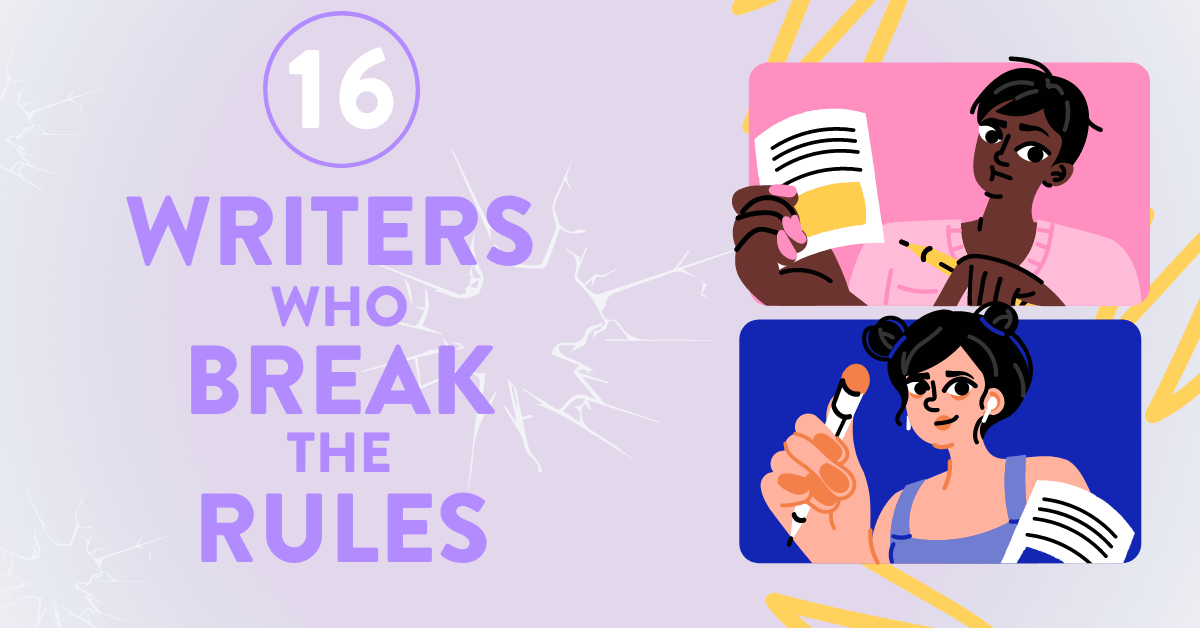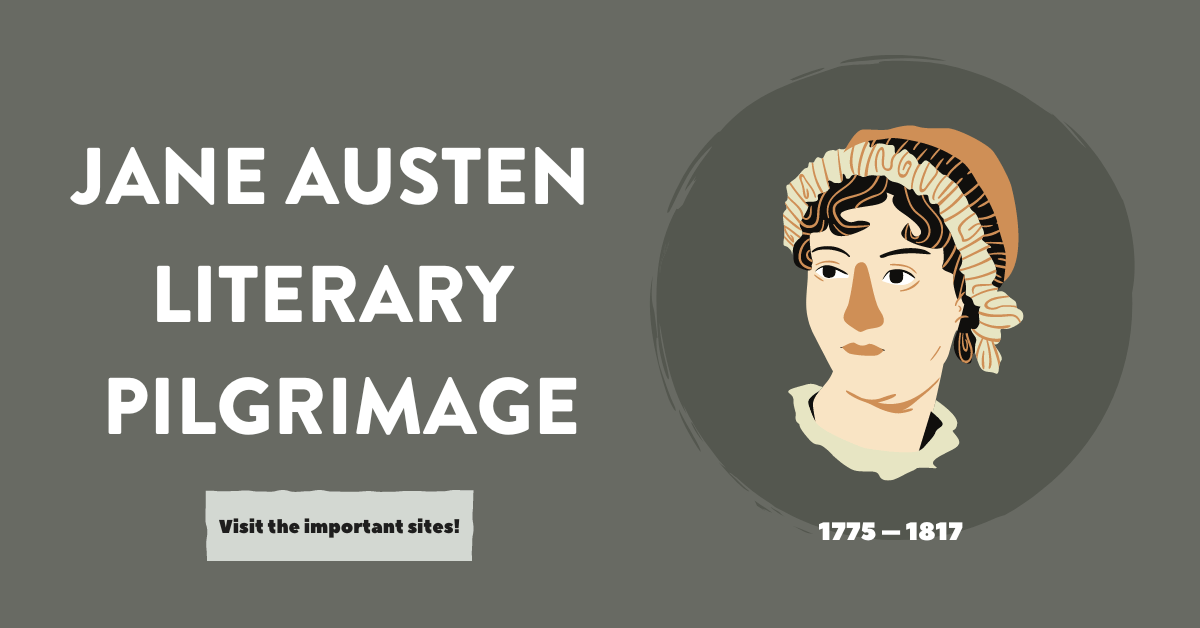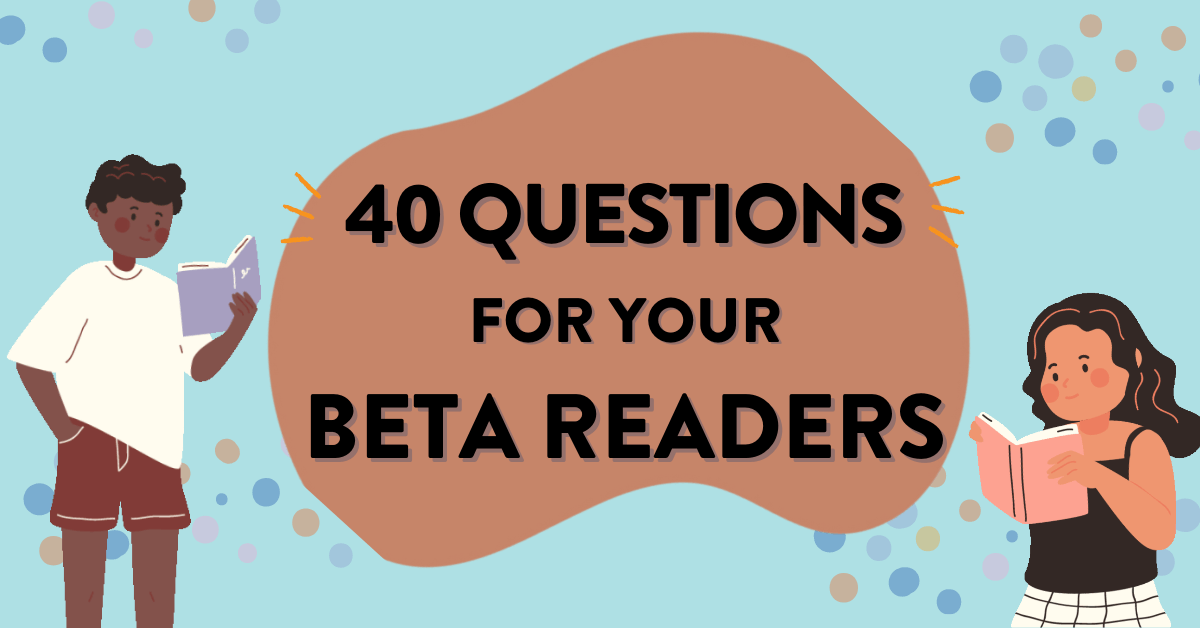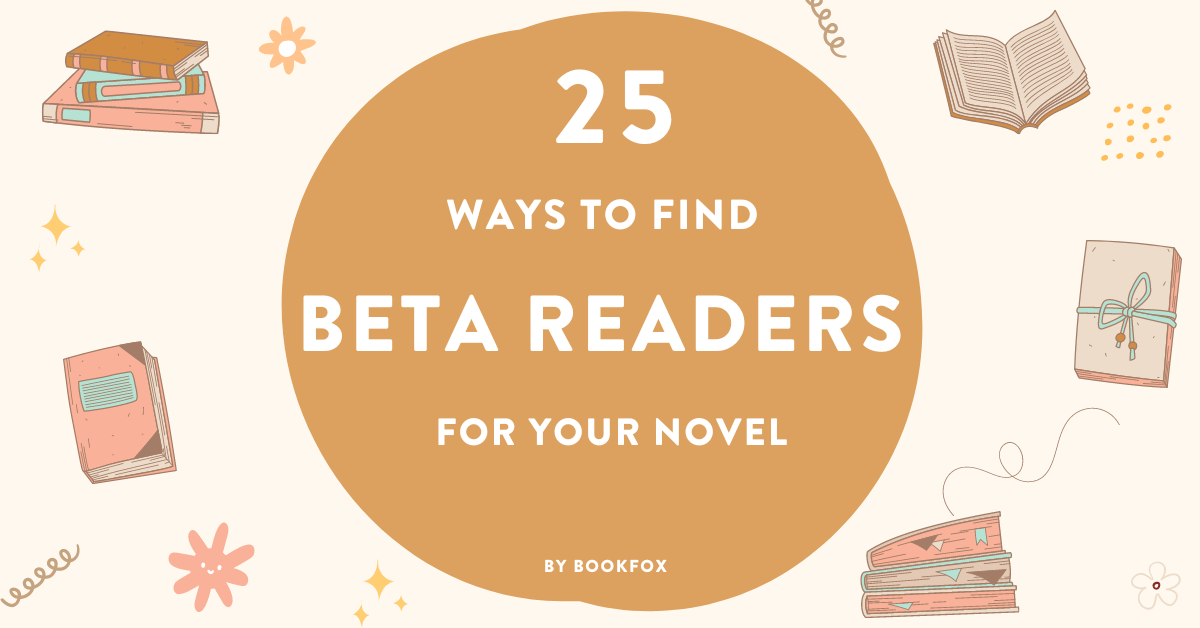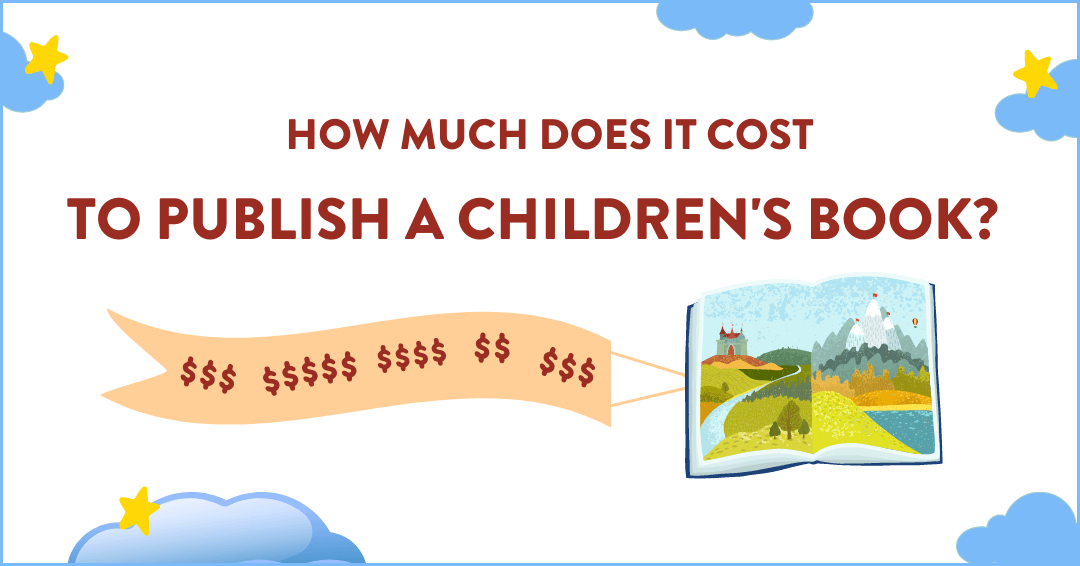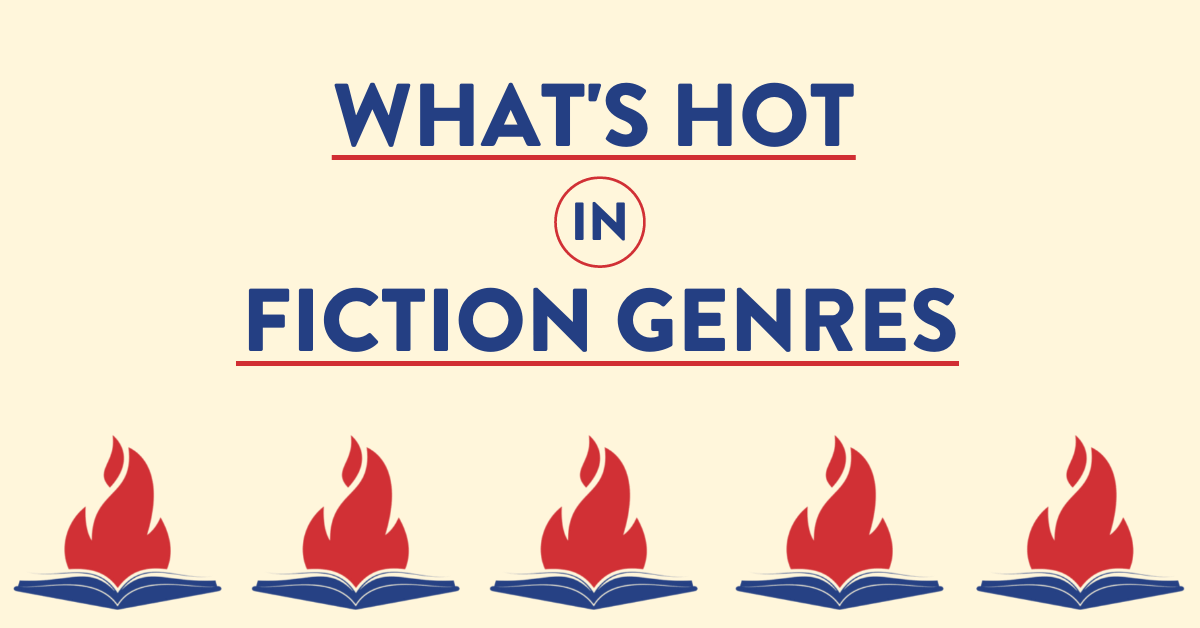Guest post by Jessica Bell Are your books sales dwindling? It might be time for a book cover makeover. When an author comes to me for a cover makeover, I get excited. I get excited because it’s a sure sign of an author wanting to do things right and a sure sign of their trust […]
The Blog
- All posts
- All Popular Posts
- Characters
- Children's Books
- Dialogue
- Editing
- Endings
- Literary Agents
- Marketing
- Novels
- Plot
- Point of View
- Publishers
- Short Stories
- Writing Techniques
- Writing Wisdom
- How to Redesign Your Book Cover

- 16 Writers Who Break Storytelling Rules

Any time some well-intentioned writer tells you, “You can’t do that” in your story, please send them this article. Because this article celebrates breaking the rules! Here are more than sixteen writers who deliberately break the rules of narrative to make their book better. The twenty writers below gleefully and blatantly shatter the most fundamental […]
- How to do a Jane Austen Literary Pilgrimage

If you’re a traveling bookworm, Jane Austen’s England will bring the characters and settings in her famous novels to life as you follow her own life story. One of England’s greatest and most celebrated novelists, Jane Austen was born in the late 18th century and grew up in Hampshire in the early 19th century. The […]
- 5 Glorious Ways to Use Lists in Your Fiction

There’s nothing fancy about a list. Lists are the vanilla flavor of fiction, the most basic tool the writer can have in their toolbox. It’s the simplest way to organize information — no fancy frills, no tricks, no complexity. What you see is what you get. 1, 2, 3. A, B, C. Yet in its […]
- The 40 Essential Questions to Ask Your Beta Readers

I’ve seen a lot of beta reading questions around the internet, and they’re mostly bad. You don’t want to give the same set of questions to every beta reader. It’s best if you hand-select questions for each reader based on what you know about them. For instance, the questions you want to ask a casual […]
- 25 Ways to Find Beta Readers (and get great feedback)

It’s incredibly difficult to find beta readers. It’s almost easier to find an editor, because the relationship is transactional. Money = reading + advice. But with a beta reader, you’re asking someone to commit 5 – 10 hours of their life to your brain and story. For free. That’s a huge commitment, and you have […]
- Tertulia Review (Book Recommendation App)

I learned about Tertulia, the book recommendation app, from the New York Times article. So I decided to try it out. When I downloaded the app, it said there was a waiting list (uh, oh). But when I signed up, I immediately got an invite (although it went to my spam folder, so I didn’t […]
- How Much Does it Cost to Self-Publish a Children’s Book?

So you’re thinking about self publishing your children’s book, but you’re a little worried about how much it will cost you. That’s totally understandable. You don’t want to get too deep into the process and then realize that you can’t afford to finish. What I’ll do in this post is lay out the average costs […]
- What’s Hot in Fiction Genres in 2022

Guest Post by Mark Gottlieb, literary agent at Trident Media Group You have written a book and decided to give it a genre label, but what to call it? The question is a lot more important than it may seem… Certain genres perform much better in the marketplace than other genres. That means if you […]

